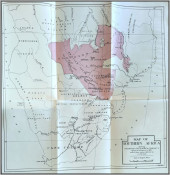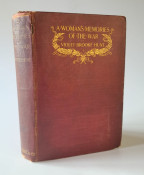Softcover. The publisher's original wraps are absent.
42pp. With illustrations from photographs and two plans.
Age-associated edge wear. Contents clean. All plates and plans present.
'Early in December 1880 the author, who had been stationed at Pretoria, was appointed to proceed to Potchefstroom to relieve the military officer in command at that place. It was known that there had been some dispute about taxes with the Boers, but there was certainly no prevalent idea that war was imminent. On his arrival the author found that the strength of the garrison totalled 213, with two nine-pounders and another gun, and measures had already been taken to start the building of a fort and to sink a well. Matters soon assumed a serious aspect, and a few days later the whole of the troops, accompanied by forty-eight civilians, were sent to the fort, the gaol, and the Landdrost's office, the two latter having been specially fortified. Next day hostilities commenced in earnest; the Boers occupied the town, and a brisk action took place round the Landdrost's office, Cronje (later on of Paardeberg fame) being in command of the Burghers. After some preliminary failures the besieged struck good water in a well at 15 feet depth, but many hardships were endured especially by the immured ladies, one of whom soon succumbed from typhoid. On January 18th the garrison at the Landdrost's office surrendered, and the troops at the gaol were removed to the fort. The Boers did not attempt to storm the position, but by the middle of March the British found it untenable; little food was left, and that was damaged; the sick were dying for nourishment, so on the 18th the Colonel thought it best to make terms for the evacuation of the fort. He appears to have obtained favourable conditions, and his troops were allowed to march out, retaining a gun and its ammunition, which were handed to the authorities at "Cronstadt," to be returned to the British Government at the close of the war. Cronje and his men treated the British officers with courtesy and kindness, and invited them to many breakfasts, dinners, and luncheons, and otherwise entertained them. The Boer General, however, concealed the fact of the agreement between Sir Evelyn Wood and Piet Joubert, a knowledge of which would have rendered it unnecessary to surrender the fort, and in consequence the British troops reoccupied the town for a short time at a later date. In all other respects the Boers behaved with good feeling and hospitality to their opponents, and the writer describes them as "rough, hearty, determined-looking men, of a class to command respect." The casualties of the British during the siege were 31 deaths and 54 wounded; it is estimated that the Boer losses "fell little short of 250," although they would only "confess to one or two killed, and some 20 wounded." - Mendelssohn Vol.II, page 627-28
A more detailed account of the siege can be found at the following link:
http://samilitaryhistory.org/vol052jo.html
- Overall Condition: Good
- Size: 12mo.

![SIEGE OF POTCHEFSTROOM 1880-1881. A MILITARY EPISODE IN THE TRANSVAAL [1896]](https://s3-eu-west-1.amazonaws.com/antiquarianauctions/main/1758364839a5.jpg)
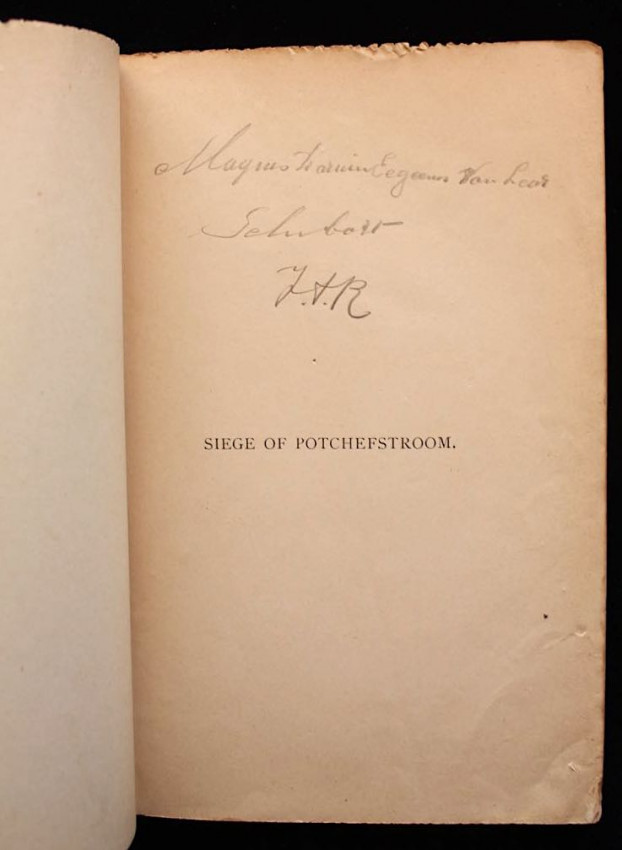
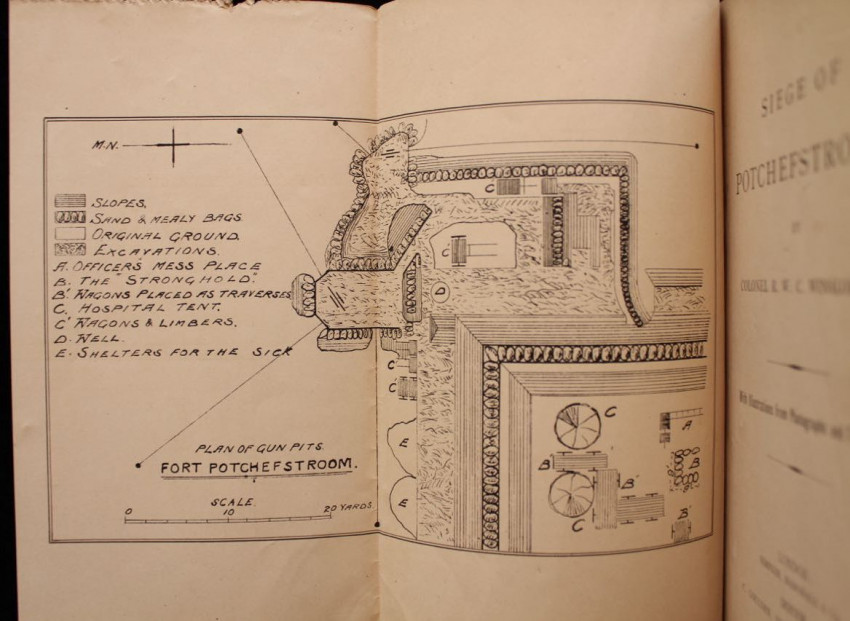
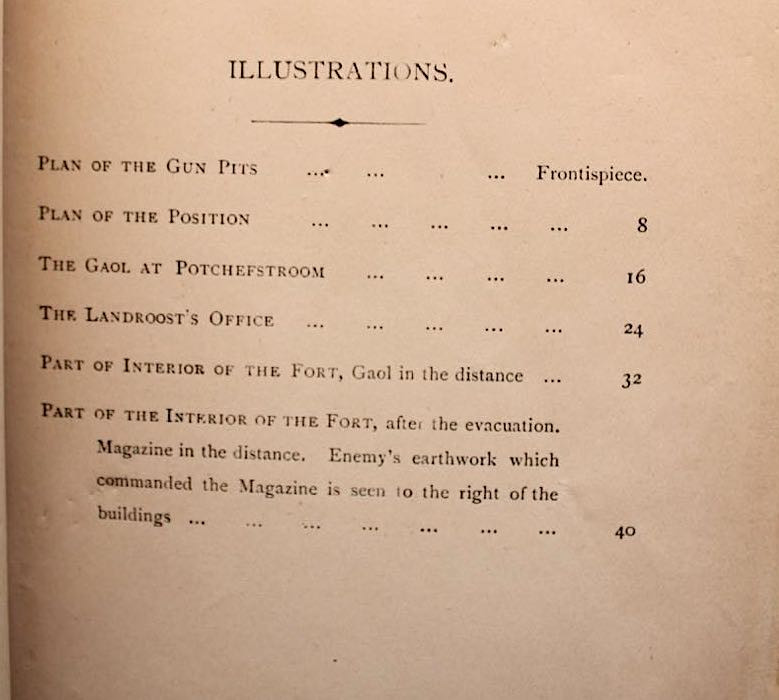
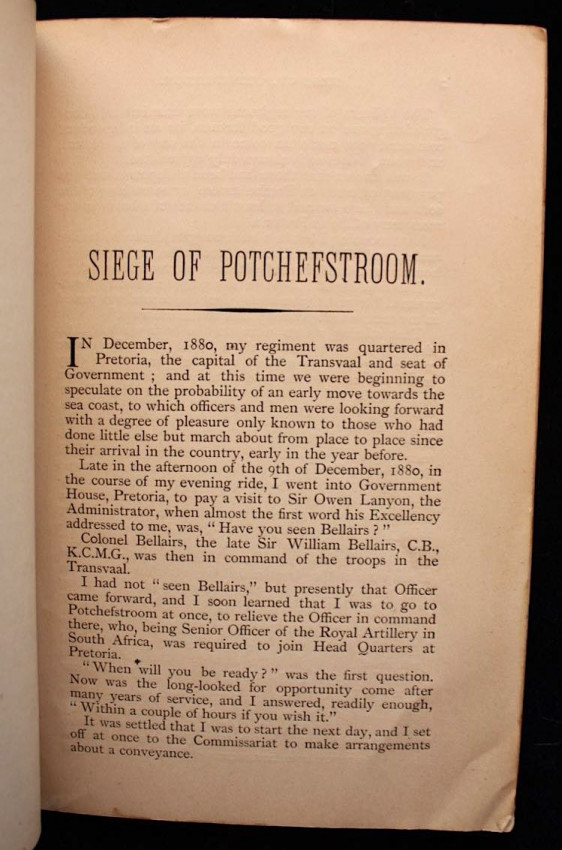
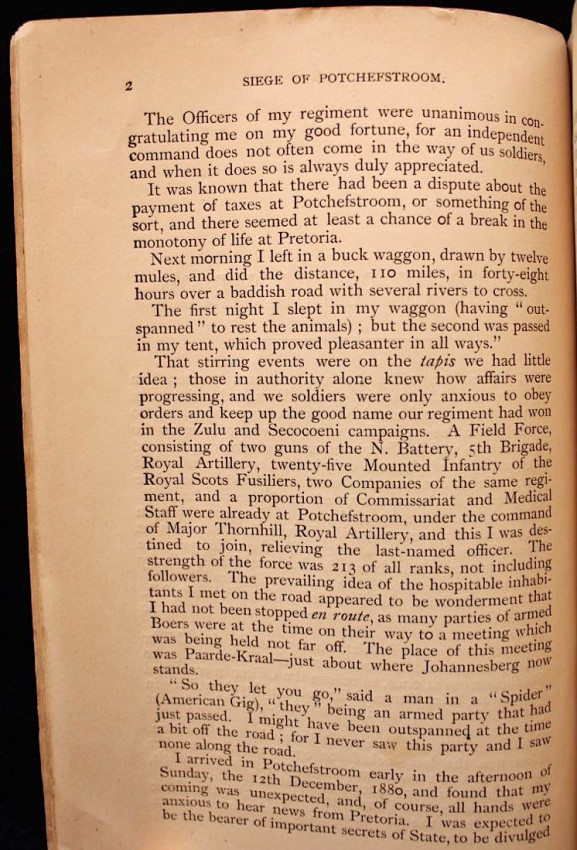
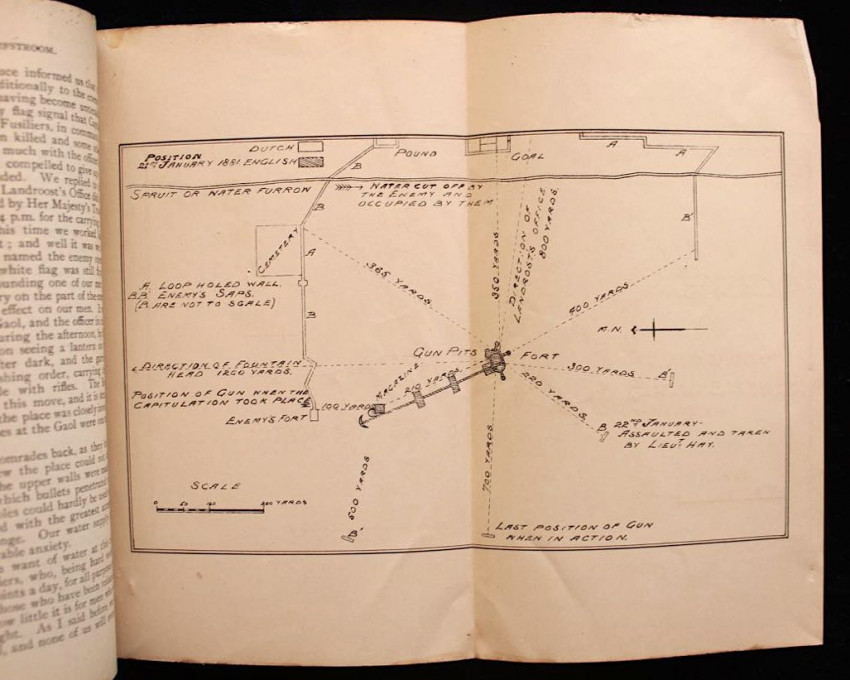
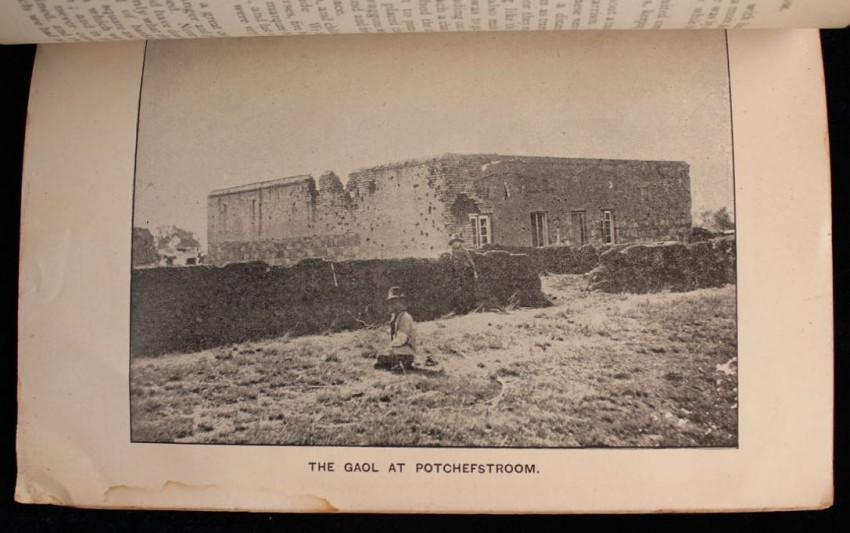
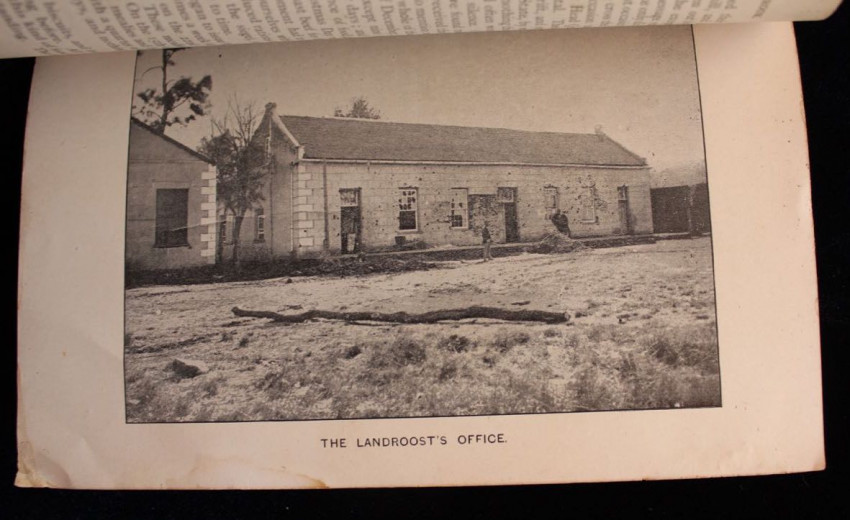
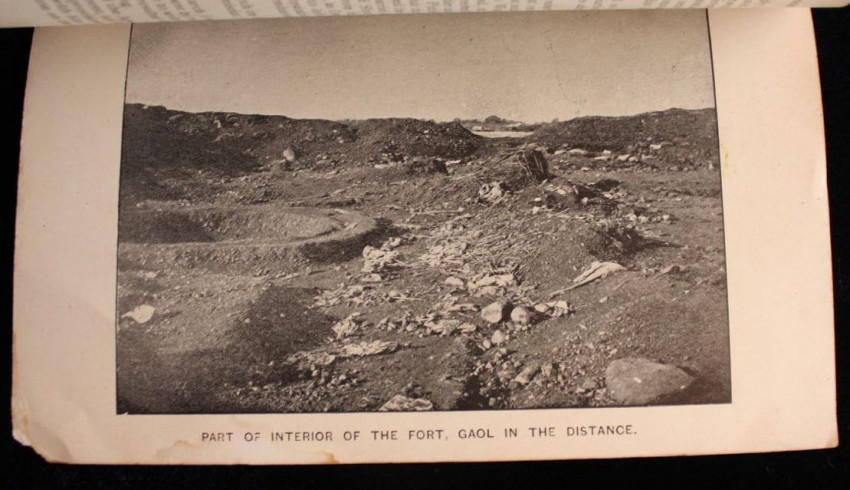
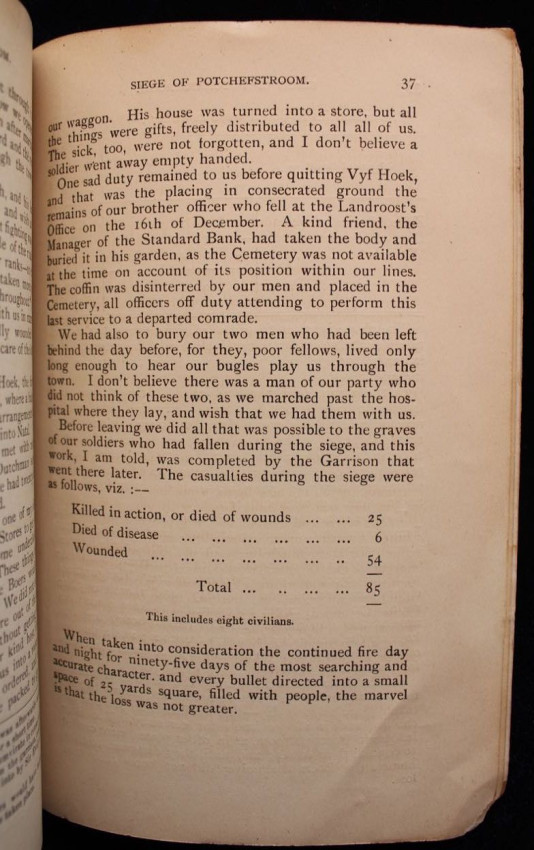
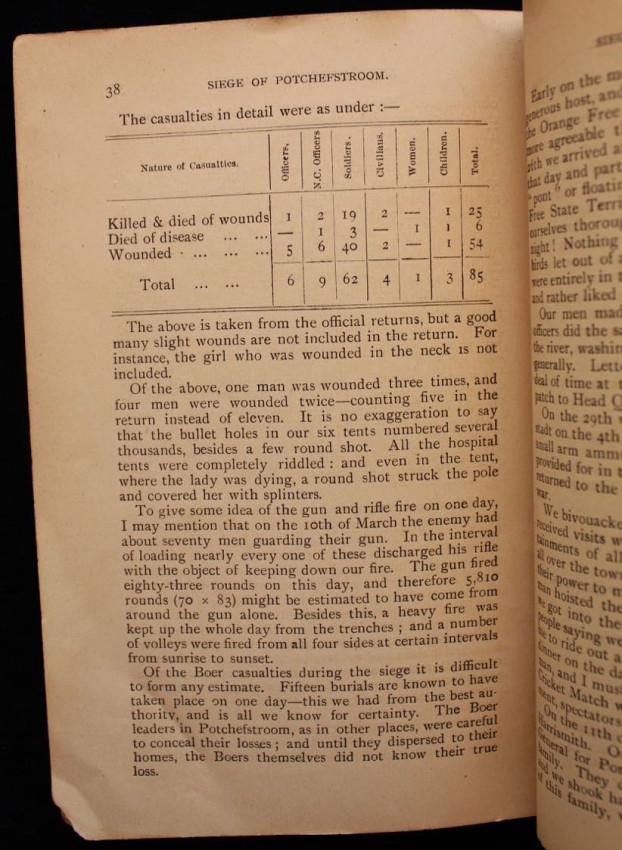
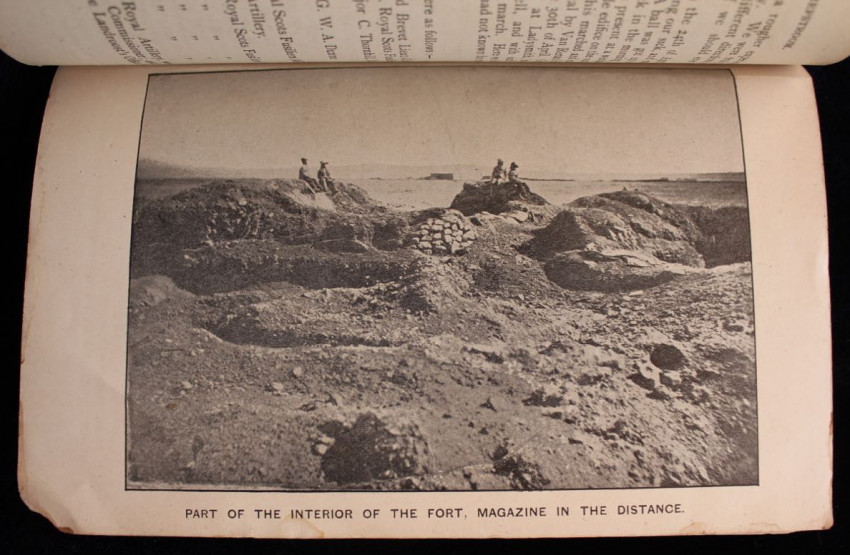
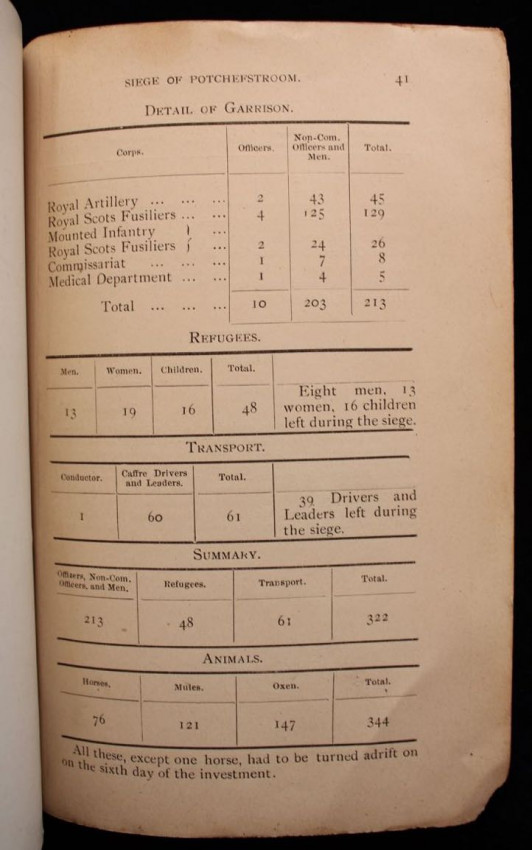
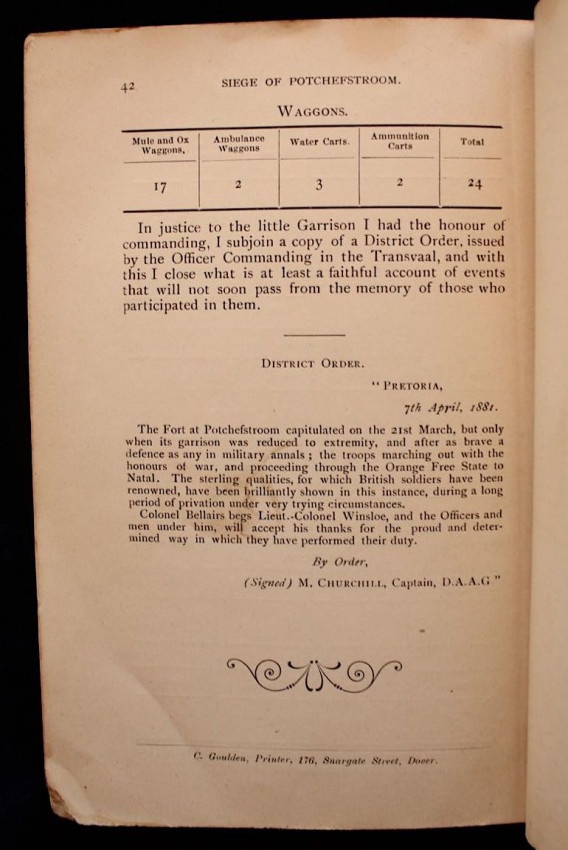
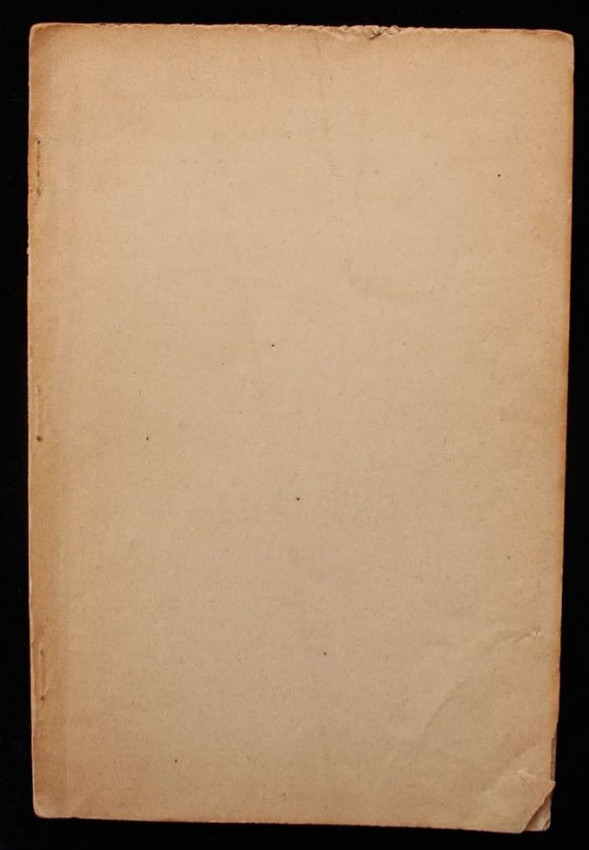
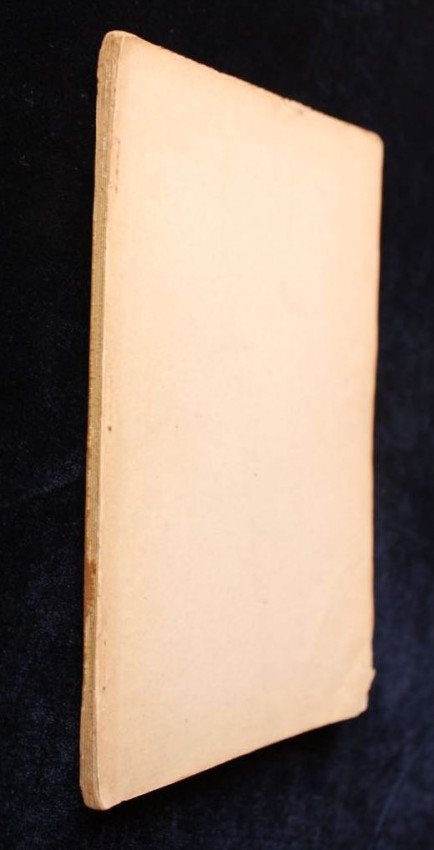
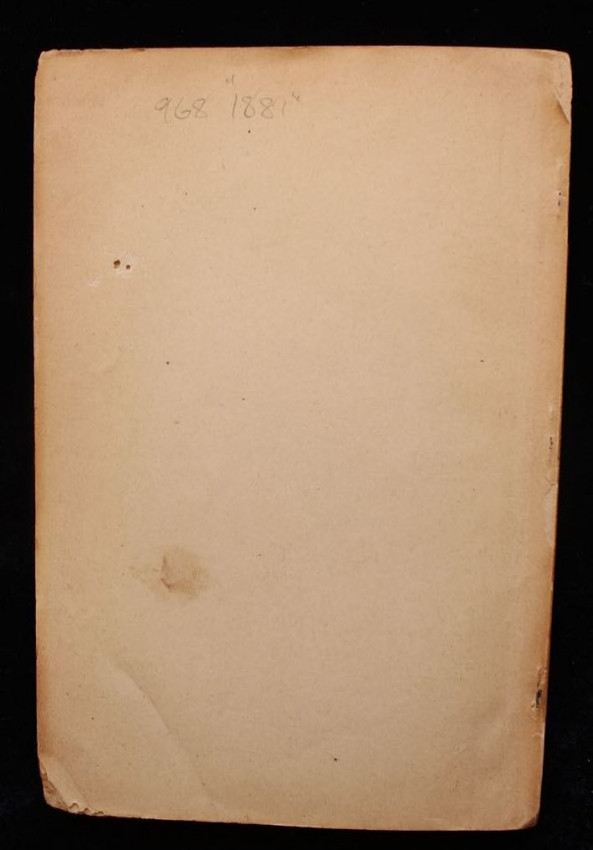
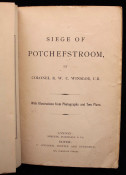

















.jpg)
